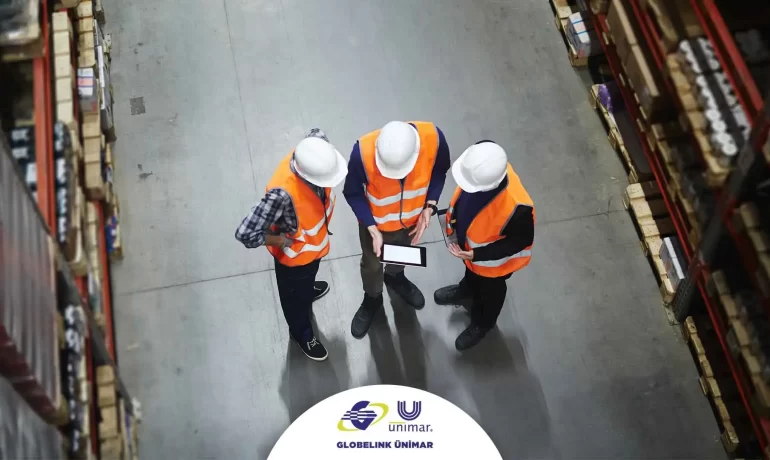
- August 4, 2022
- Blog
The world is alarmed about the Paris Agreement and the reduction of greenhouse gases. It was the global climate crisis that sparked the transformation. The pandemic and natural disasters around the world have increased the sensitivity of companies to the environment.
The “Fit for 55” legislative package proposal for the implementation of the European Green Deal was announced last July. The package included many legal regulations that would have a significant impact on Turkey, especially the Carbon Border Regulation Mechanism, which envisages imposing additional tax liability on exports to the European Union. In the new package, issues such as tightening the EU Emissions Trading System and reflecting it on sea and land transportation, carbon regulation at the border, increasing the use of renewable energy, more energy efficiency, lower-emission transportation modes and the infrastructure and fuels to support them come to the fore. This includes ending the use of fossil fuels in motor vehicles by 2035, aligning taxation policies with the European Green Deal targets and implementing many similar measures.
However, the logistics industry is not only affected by them. The latest development, which closely concerns the Turkish logistics industry, came from the Istanbul Chamber of Industry. The eighth of the guides prepared by the Istanbul Chamber of Industry in order to increase its sustainability competencies has been announced for the “Road and Sea Vehicles and Sub-Industry” sector. This was also an indication that Turkey has reared up in global trade, where end-to-end solutions are produced to reduce greenhouse gas emissions from all industries.
The Transition Period Starts in 2023
Although the Carbon Border Regulation Mechanism seems to be related to the iron-steel, cement, fertilizer, aluminum and electricity sectors in the first place according to the draft regulation, it basically concerns the logistics industry. The commissioning of CBRM covers the transition period between 2023 and 2025. At this stage, EU-origin importers who import products covering these groups of goods will not make any payments, only the emissions found in the imported products will be reported.
In the implementation period that will start in 2026, EU importers are required to purchase certificates for the emissions found in the products they have registered with the national authorities. The cost of the certificates will be calculated in €/tonne CO2 based on weekly Emissions Trading System prices. Whether the system covers new industries or not will be evaluated by the commission.
Emission Reduction is Important in Every Area
Emissions from transportation are important for imported goods as transportation takes place in both the product direction (downstream) and the raw material direction (upstream). At the same time, reduction targets come to the fore in the fight against climate change. Experts emphasize the importance of a holistic approach to emissions from transportation in the emission reduction targets in the fight against climate change. In addition, the industry representatives underlined that the emissions arising from the use of electricity in the facilities and the indirect emissions should be spread to more industries and they say that this issue will also be beneficial for emission reduction.
For the transition period, the leading companies of the logistics industry have already made moves for carbon regulation. The industry has started to focus on digitalization, innovation and sustainability for the next period. In this sense, it is important to monitor and manage the work effectively in order to manage the transformation processes and to bring operational efficiency to higher levels. Because the leading players of the world of logistics industry have started to rise with R&D and innovation!
The Improvement of Logistics Infrastructure will Increase Competition
Istanbul Chamber of Industry (ISO) has announced the eighth of the guides for the “Road and Sea Vehicles and Sub-Industry” sector, which it has prepared for 10 different sectors, in which 55 professional committees are grouped, in order to generate high added value in the global market and to increase their sustainability competencies. The report, which is also closely related to the logistics industry, focuses on the opportunities offered by the European Green Deal to the industry and the development of the entire supply chain within the changing eco-system. The report also emphasizes that the development of logistics infrastructure is a critical issue in order to strengthen Turkey’s competitiveness.
Emissions are Important in Transportation Methods
Logistics is an important issue that concerns all companies that import or export today. In the section titled “Sustainability Priorities-Environment” of the report, explanations are made by focusing on the automotive industry. In the report, which is based on the fact that 80 percent of Turkey’s automotive exports are for EU countries, the structural changes in the EU with the Constitutional Court and the importance of taking steps by closely following the new rules to be brought in foreign trade by the industry are explained.
It is explained that the industry gains and maintains competitive sustainability competencies on a global scale is also valuable in terms of country competitiveness. It is stated in the report that the global shipbuilding market is expected to grow in the future due to increasing maritime trade and economic growth, increasing energy consumption, demand for environmentally friendly ships, LNG fueled engines, and transportation services.
In addition, the report also shares the note that the European aviation industry predicts that all flights departing from the EU, the United Kingdom and the European Free Trade Association will be realized with net zero CO2 emissions by 2050 based on the Paris Agreement and the Constitutional Court.
Qualified Workforce
Another point that draws attention in the sustainability report published in the field of “Road and Sea Vehicles and Sub-Industry” is the issue of qualified workforce. In the section titled “Sustainability Priorities-Social” of the report, it is stated that there is a need for competent, qualified and permanent employees for reasons such as technological developments, digital transformation, increasing quality and productivity needs and competitive conditions. It is stated that the protection and development of the qualified workforce, which is one of the most important competitiveness elements of the industry, is one of the priority issues, adaptation mechanisms should be put into use to address the skill gap, and opportunities and environments should be provided for their continuous development by designing processes in which employees can reveal their potential.
It emphasizes the importance of providing safe and healthy working conditions to industry employees, increasing responsible purchasing and supply chain traceability, preventing human rights violations and negative environmental impact in the value chain, and operational excellence, diversity and inclusion.
The Awareness in The Business World
Emphasizing that a number of global trends such as green growth policies, disruptive technological developments, changes in purchasing power, rapid urbanization in emerging markets and changes in consumer behavior create factors that will change the dynamics of the industry, the report states that the increase in connected vehicles, autonomous driving, shared mobility, electric vehicles and alternative fuel vehicles, R&D and P&D activities come to the fore. Similarly, it is pointed out that issues such as the development of hydrogen-powered and hybrid aircraft with high fuel efficiency, and the provision of energy efficiency in the entire supply chain through digitalization and automation in the ship sector, gain importance.
Highlighted Topics in Road and Sea Vessels and Sub-Industry
- Increasing the use of renewable and low-carbon fuels with low and zero-emission vehicles to reduce dependence on fossil fuels
- Having at least 30 million zero-emission vehicles in traffic by 2030
- Zero-emission cars, buses, trucks and trucks across Europe by 2050
- Tightening emission standards for cars, trucks, trucks and buses in transportation (introducing very strict air pollutant emission standards for vehicles with internal combustion engines)
- Increasing the availability of electricity and hydrogen with more charging stations by reviewing the Alternative Fuels Infrastructure Directive
- Focusing on innovative product studies that will provide decarbonization to the sector
- Increasing the use of renewable energy
How is the Turkish Logistics Industry Affected?
In line with the goals of the European Green Deal, a comprehensive transition will take place from industry to agriculture and from transportation to energy. The decision of the EU Commission to support environmentally friendly vehicles and alternative fuels also concerns Turkey, which is an important base in logistics. In the next period, the industry will focus on investment in low and zero emission vehicles, including infrastructure. Transportation modes that pollute the environment less will come to the fore. Production and diffusion of alternative fuels will be supported.
Logistics is at the Center of Fit for 55
The climate crisis was the most debated topic not only in the business world but also in our daily lives last year. Increasing awareness of environmental pollution in society has made green transformation a priority for companies. Of course, the strict stance of the EU, our country’s biggest trade partner, on this issue and the packages it announced play a major role in this. As you know, the European Union has announced that a series of climate change laws will be enacted towards the goal of becoming carbon neutral by 2050. More than 10 law drafts have been announced to be approved by 27 EU member states and the European Parliament. Among the proposals are sanctions such as taxing aviation fuels and banning oil and diesel vehicles by 2035. There are measures that closely concern our industry in the “Fit for 55” package.
The EU’s existing Emissions Trading System has been expanded to include new sectors such as maritime and air transport. As a carbon limit tax, more taxes are applied to manufacturers outside the EU for the import of products such as steel and concrete, and this is also closely related to the logistics industry that carries these products. Ships larger than 5,000 tonnes docking at EU ports will need to get pollution permits under the emissions system. For this reason, we can say that the priorities in the supplier selection of companies will start to shift towards the green standards determined by the EU, or have even started. Because the transition process begins next year. Even if the sanctions appear to be applied to an industry or product group, they will affect the entire supply chain. In this respect, everyone, from the smallest shipper to the port operator, needs to be ready for the green transformation. Otherwise, they may encounter new taxes and extra costs, and it will not be possible for companies that are not ready for standards to be able to transport.
As Globelink Ünimar, we closely follow each package announced by the EU for climate change and the transition processes of our sectors. We also make our criteria in our supplier selection within this framework. As Globelink Ünimar, I can proudly say that we are already ready for the EU Green Deal.
Artificial Intelligence is Both Changing and Transforming
Today, we can see the clues that we will
The Future of the Cargo Market is Shaped by e-commerce
The e-commerce industry has been growing rapidly since the



